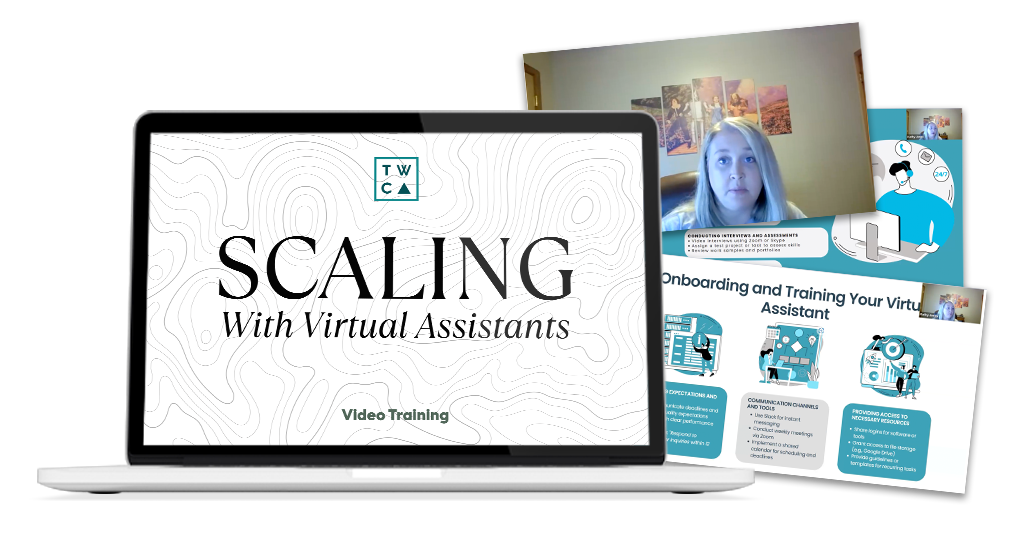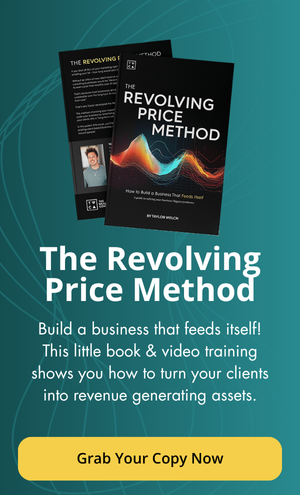You Need People… More Than You Think
Why does anyone start a business in the first place?
There’s no one size fits all answer to that, obviously. But it tends to boil down to some combination of these three things:
- To buy back time
- To create financial freedom
- To get out from under the glass ceilings of standard employment
Probably the best answer that combines all three is, “They want CONTROL.”
At some level, we all do.
But the obsession with control quickly turns into a bottleneck when growth arrives, and with it, complexity. At some point, every ambitious coach or consultant must confront the reality that they can’t scale a business that depends entirely on their own effort.
Yes, AI is changing the landscape of how businesses run. It’s a fact you can’t outrun. But until it can manage your sales and marketing processes without any human interaction, or re-arrange your operations team on a Sunday night to make sure you don’t miss payroll… you’ll have to face the fact that you NEED people if your business is going to get bigger without crashing.
The human component remains the heartbeat of sustainable scale. That means team. And if you want to build a real business, not just a better-paid job, you’ll need help. Not generic, smiling stock-photo help. The right help.
Pursue scale all you want, but the longer you delay building a reliable, competent team, the more your business will plateau. We’ve seen it in nearly every high-potential brand that joins our programs. They’re trying to substitute strategies for PEOPLE. While it may work for a while, it eventually leads to catastrophic results.
They need the right people, doing the right things if they actually want the freedom and time flexibility that they got into this for.
But before the hiring spree begins, we need to lay a proper foundation.

Culture Eats Everything
The first thing to understand is this: a business won’t grow faster than the culture that holds it. It doesn’t matter how good someone is on paper. If the standard of the individual doesn’t match the standard of the organization, the whole thing starts to bend and buckle.
A strong culture is also a flywheel. When it’s built around high standards of performance and behavior, it becomes self-correcting. Underperformers feel the pressure and eject themselves. High performers rise and make the culture even stronger in the process. There’s no memo required to tell people how to conduct themselves and how hard to push themselves. There’s just a collective understanding of what’s tolerated and what is not.
If your team can’t articulate your mission, or (worse) if they’re performing to the level of the lowest common denominator because you lack the fortitude to address it, the business is already in decline. Not “headed toward decline”… already THERE.
Leaders who want to scale need a framework that makes these decisions clear, objective, and unshakeable. Set the expectation early and often through your own behavior, and A players will always match or exceed it.
An evaluative model is required for this to run as you grow.

Attitude. Competency. Experience.
We all want to be “kind” leaders who treat people the right way.
But there’s a major difference between “kind” and “nice.” Sometimes the nice thing to do for someone isn’t actually KIND to them. And vice versa. Sometimes saying something that doesn’t necessarily feel “nice” is the most kind, caring, compassionate thing you can do for them.
There’s an invisible invoice that comes with being nice when you should be kind.
Keeping someone on the team because you like them is a tax on your mission. So is avoiding confrontation. So is mistaking popularity for leadership. The business is either optimized for growth or optimized for emotional comfort. It cannot be both.
When a founder says they can’t find good people, it’s almost always because they’re still holding onto the bad ones. Clean house and the A players show up. Keep the C players and the A players quietly leave. If this sounds familiar, our article on “Right Person, Right Seat, Right Version” is required reading.
Quarterly reviews help with organizational clarity. They’re not just some item on an HR checklist. If someone is under an 8 out of 10 on attitude, competency, or experience, you have a decision to make. Invest in their growth or replace them with someone who ranks high where you need it the most. But do not leave it alone.
Uncomfortable truth: culture is shaped most by what a leader ignores.
Scale: A Team Sport
Scaling without a team is like trying to build a skyscraper solo. You might get the first floor up, but you’ll never reach the skyline. Growth requires people. And those people must be measured, developed, and held accountable.
It’s like that famous saying, “If you want to go faster, go alone. If you want to go farther, bring others.”
The A.C.E. framework gives you the tools to do it. Not reactively. Proactively. Before things fall apart. Before mediocrity becomes your company culture.
And if you’re wondering how to grow your business without adding more hours to your calendar, it starts here, with team, with clarity, and with standards that don’t bend to fear. We’ve written about that here.
Become a better architect. Growth will be the natural result.

Looking For Somewhere to Get Started With Hiring?
One of our favorite ways to start the process of hiring and replacing your own effort inside of the business is to build using Virtual Assistants (or VAs). Our legendary VA manager, Kathy, drops 3 hours of straight gold on how to find, hire, and MAXIMIZE the output you get from VAs. Less wasted time and spilled milk. Faster results from lower effort. All of it is covered in this training.

